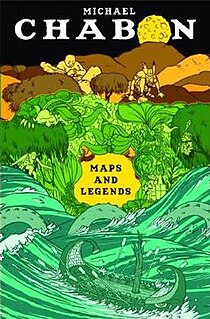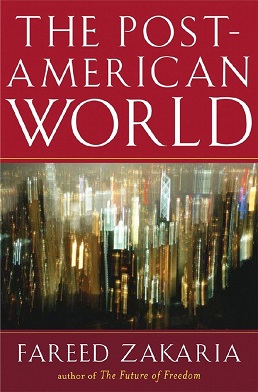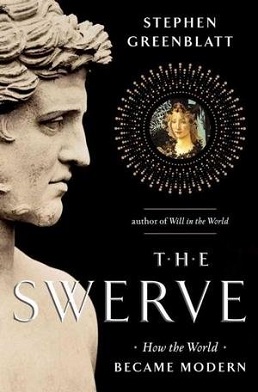
Crashing the Party is a 2002 book by Ralph Nader detailing his experiences running in the 2000 U.S. Presidential Election.
These are the references for further information regarding the history of the Republican Party in the U.S. since 1854.
William J. Bernstein is an American financial theorist and neurologist. His research is in the field of modern portfolio theory and he has published books for individual investors who wish to manage their own equity portfolios. He lives in Portland, Oregon.
Todd G. Buchholz is an economist and has served as White House director of economic policy under George H. W. Bush and a managing director of the Tiger hedge fund. He was awarded the Allyn Young Teaching Prize by the Harvard University Department of Economics and was named "One of the Top 21 Speakers of the 21st Century" by Successful Meetings magazine.

Joel Mokyr is a Netherlands-born American-Israeli economic historian. He is a professor of economics and history at Northwestern University, where he has taught since 1974; in 1994 he was named the Robert H. Strotz Professor of Arts and Sciences. He is also a Sackler Professorial Fellow at the University of Tel Aviv's Eitan Berglas School of Economics.

Maps and Legends is a collection of sixteen essays by American author Michael Chabon, his first book-length foray into nonfiction. Several of these essays are defenses of the author's work in genre literature, while others are more autobiographical, explaining how the author came to write several of his most popular works.
Movement conservatism is a term used by political analysts to describe conservatives in the United States since the mid-20th century and the New Right. According to George H. Nash (2009) the movement comprises a coalition of five distinct impulses. From the mid-1930s to the 1960s, libertarians, traditionalists, and anti-communists made up this coalition, with the goal of fighting the liberals' New Deal. In the 1970s, two more impulses were added with the addition of neoconservatives and the religious right.

The Post-American World is a non-fiction book by American journalist Fareed Zakaria. It was published in hardcover and audiobook formats in early May 2008 and became available in paperback in early May 2009; the Updated and Expanded Release 2.0 followed in 2011. In the book, Zakaria argues that, thanks to the actions of the United States in spreading liberal democracy across the world, other countries are now competing with the US in terms of economic, industrial, and cultural power. While the US continues to dominate in terms of political-military power, other countries such as China and India are becoming global players in many fields.

Crunch: Why Do I Feel So Squeezed? (ISBN 978-1-57675-477-1) is a book written by Jared Bernstein, Chief Economist and Economic Policy Advisor to Vice President Joe Biden, and published in 2008. In it, Bernstein offers a layman's introduction to how the U.S. economic system works. Using economic inequality as the basis of his argument, Bernstein explains why Americans still feel squeezed during boom times, what he believes is wrong with the economy, and how he believes it could be improved for the greater common good.

The Lost Hero is an American fantasy-adventure novel written by Rick Riordan, based on Greek and Roman mythology. It was published on October 12, 2010, and is the first book in The Heroes of Olympus series, a sequel to the Percy Jackson & the Olympians series. It is preceded by The Last Olympian of Percy Jackson & the Olympians and followed by The Son of Neptune. The novel has since been translated into many languages and released as a hardcover, e-book, audiobook and paperback.
Pamela Haag is an American writer and historian.
James "Jim" Grant is an American writer and publisher. He founded Grant's Interest Rate Observer, a twice-monthly journal of the financial markets published since 1983. He has also written several books on finance and history.
Stephen Leeb is an American economist financial author, wealth manager, and publisher of a family of investment newsletters. He has appeared on CNN, Fox News, NPR and Bloomberg TV, and has been called one of the country's foremost financial experts by Business journalist Charlie Gasparino and one of the greatest long term strategists of his generation by American billionaire businessman Thomas Kaplan which can be summarized by Kaplan's statement and foreword in Leeb's 2012 release of Red Alert saying "I would caution readers to dismiss Stephen Leeb's warnings only at their peril."

The Swerve: How the World Became Modern is a 2011 book by Stephen Greenblatt and winner of the 2012 Pulitzer Prize for General Non-Fiction and 2011 National Book Award for Nonfiction.

A Capitalism for the People: Recapturing the Lost Genius of American Prosperity is a non-fiction book by the Italian writer and economist Luigi Zingales, who is known for serving as a Professor of Entrepreneurship and Finance at the University of Chicago's Booth School of Business. Zingales also authored the book Saving Capitalism from the Capitalists, released in 2003.

Why Nations Fail: The Origins of Power, Prosperity, and Poverty, first published in 2012, is a book by economists Daron Acemoglu and James A. Robinson. The book applies insights from institutional economics, development economics and economic history to understand why nations develop differently, with some succeeding in the accumulation of power and prosperity and others failing, via a wide range of historical case studies.

How to Be an Antiracist is a 2019 nonfiction book by American author and historian Ibram X. Kendi, which combines social commentary and memoir. It was published under Random House's One World imprint. The book discusses concepts of racism and Kendi's proposals for anti-racist individual actions and systemic changes.

Good Economics for Hard Times: Better Answers to Our Biggest Problems is a 2019 nonfiction book by Abhijit V. Banerjee and Esther Duflo, both professors of economics at MIT. It was published on November 12, 2019 by PublicAffairs (US), Juggernaut Books (India), and Allen Lane (UK). The book draws from recent developments in economics research to argue solutions to the issues facing modern economies and societies around the world, including slowing economic growth, immigration, income inequality, climate change, globalization and technological unemployment. It is their second collaborative book since the publication of their book Poor Economics: A Radical Rethinking of the Way to Fight Global Poverty (2011) and their first since becoming a married couple in 2015. The book's publication comes a month after Banerjee and Duflo were jointly awarded the Nobel Prize in Economics, shared with Harvard University professor Michael Kremer.

The Color of Law: A Forgotten History of How Our Government Segregated America is a 2017 book by Richard Rothstein on the history of racial segregation in the United States. The book documents the history of state sponsored segregation stretching back to the late 1800s and exposes racially discriminatory policies put forward by most presidential administrations in that time, including liberal presidents like Franklin Roosevelt. The author argues that intractable segregation in America is the byproduct of explicit government policies at the local, state, and federal levels, also known as de jure segregation — and not happenstance, or de facto segregation. Among other discussions, the book provides a history of subsidized housing and discusses the phenomenons of white flight, blockbusting, and racial covenants, and their role in housing segregation. Rothstein wrote the book while serving as a research associate for the Economic Policy Institute, where he is now a Distinguished Fellow.

Capitalism in America: A History is a 2018 book written by former chairman of the Federal Reserve Alan Greenspan and Adrian Wooldridge, political editor at The Economist. The book traces the economic history of the United States since its founding and the authors argue that America's embrace of capitalism and creative destruction has given the nation's economy a superior edge.













